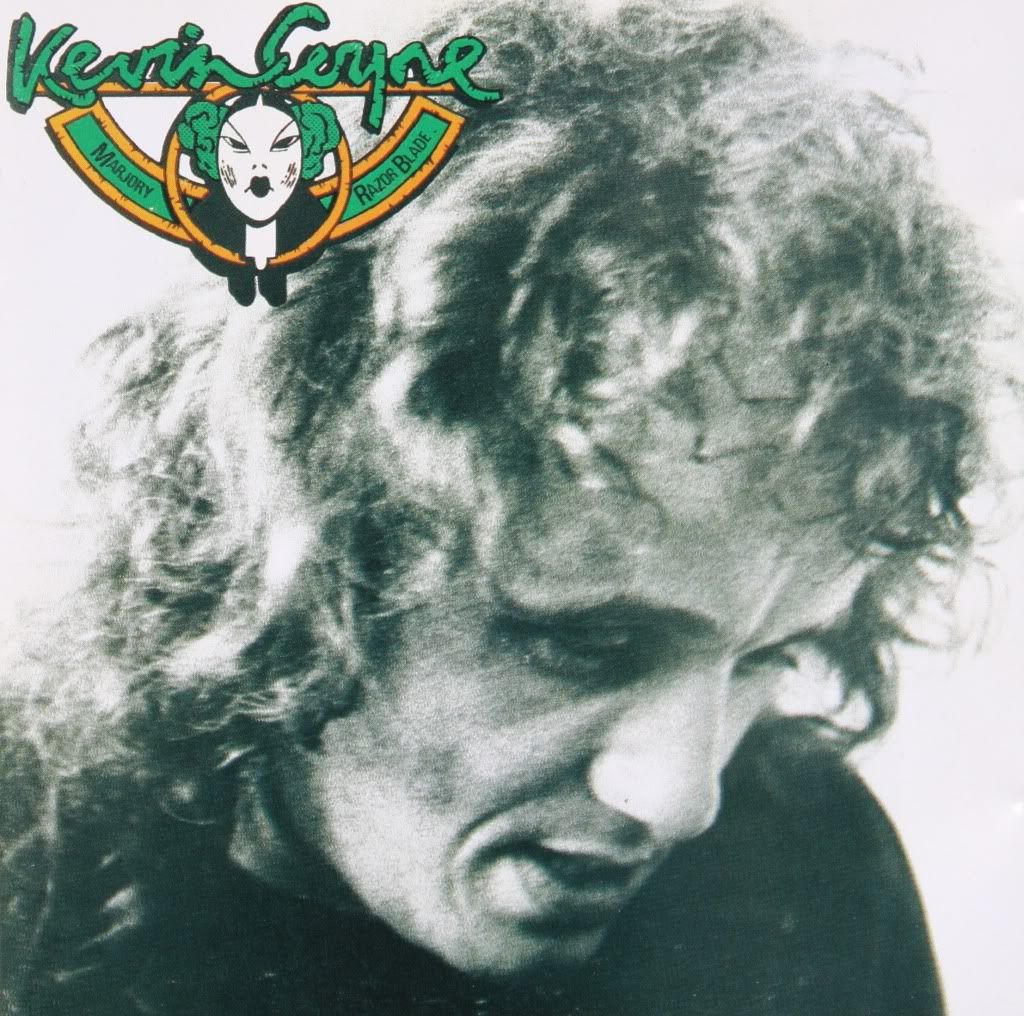Tuesday, July 5, 2011
Kevin Coyne - Marjory Razorblade
One of my favorite weird singer/songwriters is the enduringly obscure Kevin Coyne. Though he started his career with a rather generic blues-rock outfit called Siren, Coyne eventually embarked on a solo career that occasionally brilliantly, almost always interestingly, and usually commercially unsuccessfully straddled the line between intense singer/songwriter, blues, and avant-garde material. If you've read or heard about Kevin Coyne, it's probably been this 1973 album, his second solo outing and his undisputed high point--Marjory Razorblade.
A sprawling double album, Marjory Razorblade manages to cover a quite wide subject matter swath while maintaining a coherent sound typified by plenty of acoustic and bluesy electric guitars, Dobro, organ and an occasionally boisterous rhythm section. If you start reading about Kevin Coyne, it won't be too long before you see him compared with Van Morrison--listen to the joyous, organ-suffused "Marlene" to have this comparison confirmed (except, what are those weird Captain Beefheart noises he starts making toward the end...?), then listen to, say, "Nasty," to have the comparison become nearly meaningless--though their vocal styles are somewhat comparable, Van Morrison and Kevin Coyne are worlds apart when it comes to their respective songwriting intentions.
It's often repeated that, earlier in his life, Kevin Coyne had worked in mental health institutions, which would later inform his songwriting muse. While this detail might appear as the sort of sensational lore that is often tossed around to romanticize artists' work, there are quite a few songs that deal directly with mental instability, like the thinly-veiled desperation of "Talking to No-One," the anxious "Good Boy," and especially the heartbreaking "House on the Hill," which specifically describes the alienating environment of a mental institution and one man's struggle to reconcile his troubled psyche with the pressures of society. One aspect of Coyne's songwriting I find fascinating is his ability to conjure acutely-detailed impressions of various outsider characters often through the use of first-person narration/monologue. I don't quite understand how, but Coyne manages to variously imagine himself into the role of silent, desperate searcher on "Talking to No-One," "Everybody Says," and "House on the Hill," resentful, patronizing parent on "Good Boy," paranoid tourist on "This Is Spain," and a couple of uneasily bizarre characters whose precise summation escapes description on "Nasty" and "Jackie and Edna." The final 10 seconds of the latter--it should be noted--states (out of nowhere) but deigns not to develop a pure distillation of the essence of twee folk pop (one of the most over-developed genres of recent times). What's more, Coyne channels all these characters with gut-wrenching empathy, graceful detail, and a gentle wit that amuses often without laughing at the fragile characters in a malicious way.
Though the album does experience the unavoidable double-album flaw of having a potentially-fatiguing length, the quality across its entirety is remarkably consistent. Even the inclusion of traditional material like "Lonesome Valley" (on which Coyne sings call-and-response with himself) and "Heaven in My View" succeeds because of Coyne's energy and inventive arrangements. Similarly, more straight-ahead blues material like "Mummy" ("Way way way way WAYYYYYYYYYYY"), "Chicken Wing" and "Cheat Me" is engaging because of the band's interplay, musicianship and energy. We even get a few heavier tracks like the dire "Eastbourne Ladies" and a sort of surrealist Bringing it All Back Home-era solo acoustic Bob Dylan/Roy Harper absurd diatribe against religion in "Dog Latin." The latter is also a pretty good example of Coyne's unusual and idiosyncratic guitar style--big chords with a lot of dissonance, drone strings, but melodic riffing within the core of the noise.
It probably goes without saying that Kevin Coyne's style is undeniably eccentric--there are enough incidences of sarcastic goofy drama and Coyne's vocals dipping or soaring into bizarre territories to mean that Marjory Razorblade will sound "weird" to most mainstream music fans, but anybody who enjoys music with a pinch of absurdity will probably find his personality fascinating. Coyne's later career featured quite a few more surprisingly avant-garde tendencies and strange collaborations with other artists, but Marjory Razorblade remains his simultaneously creepy-but-accessible peak.
Subscribe to:
Post Comments (Atom)


No comments:
Post a Comment